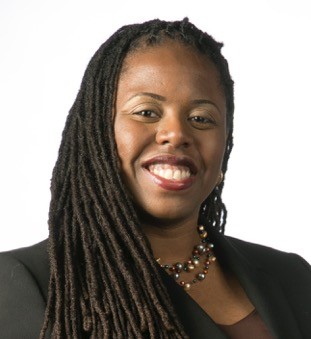Forty-four percent of Black women experience intimate partner violence (physical or sexual violence, stalking, and/or psychological aggression) at some point in our lives. That’s compared to one-third of White women. And Black women are murdered by an intimate partner at a higher rate than any other race. In 2013, we were two and a half times more likely to be murdered by an intimate partner than White women.
Last month, those facts came roaring into our collective consciousness when Lifetime aired Surviving R Kelly, a six-part documentary where women shared their stories (often starting when they were minors!) of alleged sexual and physical abuse at the hand of renowned musical artist, R. Kelly. The series challenged the Black community to think critically about intimate partner violence (IPV), and sparked some troubling, polarizing conversations.
Allegations of R. Kelly’s sexual assault against minors have been in the pop culture world for nearly 20 years, yet even after this expose many Black men and women doubled down on their unwavering support for the artist. Some blamed the victims (“they were ‘fast’ girls”) and then parents (“they ‘let’ their daughters interact with Kelly”). Most tellingly, many consider the accusations “just another attempt to bring a successful brother down.”
This is not a new phenomenon. Let’s examine how historical trauma among Blacks in America impacts our response to sexual assault.
First, slavery, and the post-slavery era lynching of Black men, stirred up our collective protective instinct; it still influences our response to sexual assault allegations today. Emmett Till is the most famous example of this. He was a 14-year-old boy who was falsely accused of whistling at a White woman, and subsequently brutally murdered. We still talk about the legacy of his murder. It creates an air of doubt when a Black man, especially a Black man of influence, is accused of sexual assault.
Then, there’s our family conditioning.
Black families have experienced generations of abuse at the hands of White authority figures, which has led to a legacy of distrust in law enforcement. When physical or sexual assault happens at home, we think, “What would happen to our Black men if the police (often White) were brought in to resolve a family conflict?” As a result, family members are often told “What happens here, stays here!” or “Don’t put our business in the streets!” Black girls and women who accuse Black men of sexual assault can experience swift, harsh backlash, as R. Kelly’s accusers have seen.
Our urge to protect Black men from systematic oppression, our drive to not send another Black man to prison, puts Black girls and women who have experienced sexual assault in a precarious position. Beyond the physical repercussions, this culture of silence may contribute to feelings of selflessness and powerlessness, contribute to internalized stress, and ultimately increase the risk of depression. From one generation to the next, Black girls and women have been taught to be strong, resilient, and to protect our families, but it may come at the detriment of our own well-being when we are also taught to be silent in our pain.
It’s uncomfortable, but these conversations are undeniably important. The Rape, Abuse and Incest National Network reported a 20% increase, and the National Sexual Assault Hotline had a 27% increase in calls to their hotlines the week that Surviving R. Kelly aired.
4 Tips to help nurses respond to intimate partner violence among Black Americans
- Acknowledge the role historical trauma plays in how the Black community responds to IPV
- Utilize a harm-reduction approach: Understand that not all women who report sexual assault are ready or able to break ties with their partner
- Recognize your bias: Men and women need assistance to deal with IPV to stop the cycle
- Identify resources that can enhance your ability to provide supportive care to people experiencing IPV
- The MyPlan App provides resources for women trying to make decisions about safety https://www.myplanapp.org
- Check out the Sexual Assault Services for Holistic Healing and Awareness center’s example of how to use a holistic approach https://www.sashacenter.org/
For more information or to get assistance for you or others experiencing sexual assault:
- RAINN (Rape, Abuse & Incest National Network) https://www.rainn.org/
- Girls for Gender Equity (GGE) ggenyc.org
- Stop Violence Against Women mylifetime.com/stop-violence-against-women
Learn more:
ABOUT THE AUTHORS

Joyell Arscott, PhD, RN is a post-doctoral fellow at the Johns Hopkins School of Nursing researching trauma and violence with Jacqueline Campbell, PhD, RN, FAAN. She earned her PhD in Nursing from Duke University in 2018. Her work applies a health equity lens to examine the historical impact of social, structural, and institutional factors behind cumulative trauma to understand minority adolescents’ sexual decision-making and reproductive outcomes. She has worked with adolescents and young adults at-risk for, and living with, HIV for twenty years.

Patty R. Wilson, PhD, RN, PMHNP-BC has served as the Director for the Johns Hopkins School of Nursing Center for Community Innovation and Scholarship for the last 15 years. She completed her Doctoral and Psychiatric Mental Health Nurse Practitioner degree at the University of Virginia School Of Nursing in 2018 and plans to focus her future clinical practice and research on improving the lives of those who have experienced trauma and creating community-based interventions that address social determinants of health.
